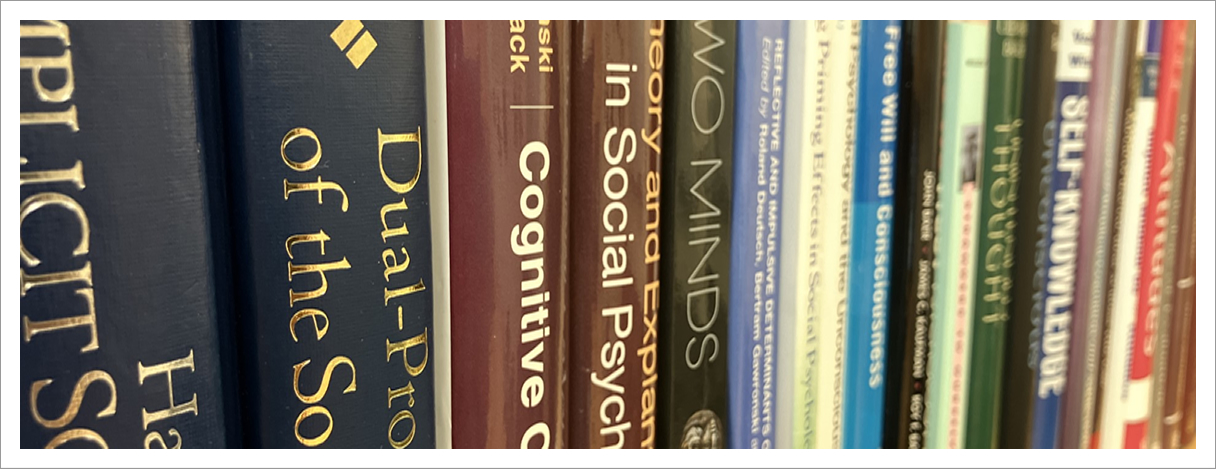
![]()

How Do People Make Evaluative Judgments?
A substantial body of research in our lab has investigated the processes underlying evaluations of objects, individuals, groups, and social issues. This work has been guided by the associative-propositional evaluation (APE) model, a dual-process theory that distinguishes between the activation of associations in memory and the validation of propositional information implied by activated associations (Gawronski & Bodenhausen, 2006, 2011). The APE model has been instrumental in providing deeper insights into the determinants of spontaneous and deliberate evaluations, as captured by implicit and explicit measures. Expanding on this research, a related line of work has investigated the processes and representations underlying contextualized attitude change (Gawronski, Rydell, De Houwer, Brannon, Ye, Vervliet, & Hu, 2018), focusing specifically on the context-sensitivity of spontaneous evaluations (Gawronski & Ceseario, 2013). In an ongoing line of research, we are using a multinomial modeling approach to gain deeper insights into the role of associative and propositional processes at different stages in the formation and behavioral expression of evaluative representations (Heycke & Gawronski, 2020).
How Do People Make Truth Judgments?
In a second line of research, we are investigating how people determine whether information they encounter is true or false, focusing on why people fall for misinformation and why people reject established scientific facts. Drawing on Signal Detection Theory (SDT), our research distinguishes between three aspects of truth judgments: (a) the ability to distinguish between true and false information, (b) general tendencies to accept versus reject information regardless of veracity, and (c) myside bias involving a tendency to accept information that is consistent with one’s personal beliefs and dismiss information that is inconsistent with one’s personal beliefs (Batailler, Brannon, Teas, & Gawronski, 2022; Gawronski, Nahon, & Ng, 2024; Gawronski, Ng, & Luke, 2023). Some of the questions we address in this line of work are: What are the relative contributions of truth discernment, overall acceptance thresholds, and myside bias to judgments of true and false information? What are the psychological underpinnings of truth discernment, overall acceptance thresholds, and myside bias? How can we improve truth discernment and reduce myside bias in judgments of true and false information?
How Do People Make Moral Judgments?
In a third line of research, we are investigating the processes underlying moral judgments and decisions. Drawing on the distinction between norm-based morality (deontology) and outcome-based morality (utilitarianism), our work aims at identifying the contributions of multiple distinct processes to responses in moral dilemmas. Prominent examples of such dilemmas are cases where violations of a moral norm lead to better overall outcomes (e.g., when causing harm to a small number of people would protect the well-being of a larger number of people). To disentangle the role of multiple distinct factors in responses to moral dilemmas, we have developed a multinomial processing tree (MPT) model called the CNI model, which quantifies (1) sensitivity to consequences, (2) sensitivity to moral norms, and (3) general preference for inaction versus action (Gawronski, Armstrong, Conway, Friesdorf, & Hütter, 2017). Using the CNI model, our research has provided deeper insights into the effects of various situation-related and person-related factors on moral dilemma judgments (for a review, see Gawronski & Ng, 2025). In our ongoing research, we are using the CNI model to gain deeper insights into the interplay between moral perceptions and political polarization.